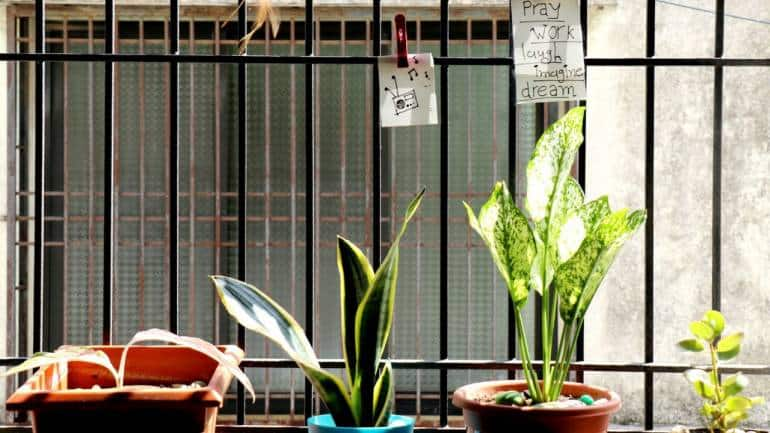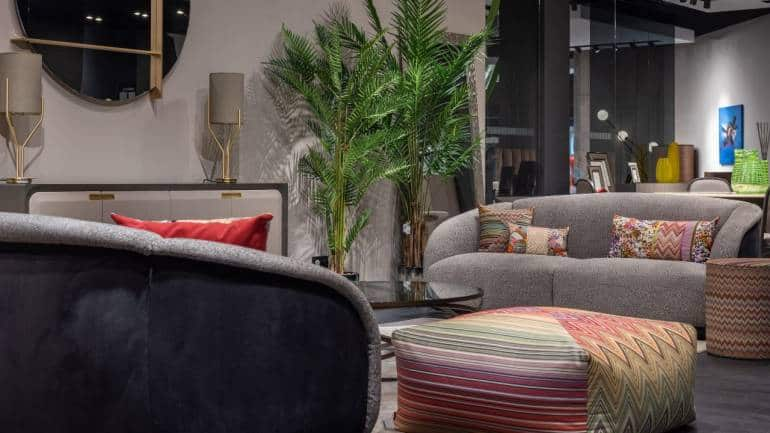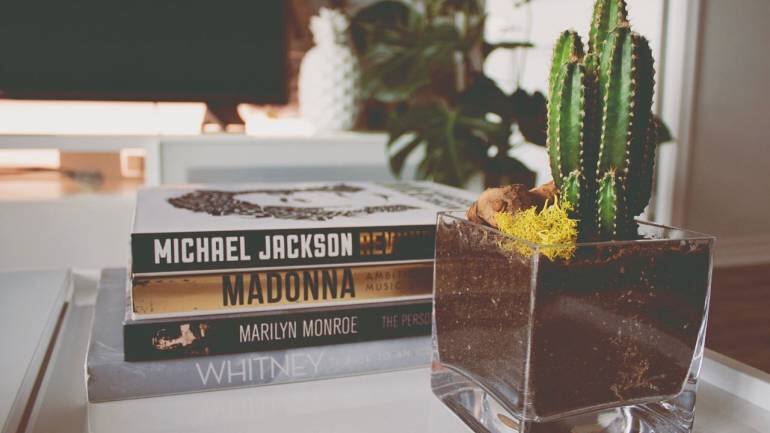



By Jenny Berger
In both Europe and the US, people spend up to 90 percent of their time indoors. But spending so much time inside can have consequences for your mental health.
The World Health Organisation estimates that 5 percent of adults globally suffer from depression. Stress, depression and anxiety also accounted for 55 percent of all working days lost in the UK during the year 2021-22. Small improvements in our mental health can bring significant personal and financial rewards.
Also see: Some of the best air-purifying plants to combat pollution
For those of us who are stuck inside all day, houseplants are an easy way of connecting with nature. This is particularly true for young people, many of whom may lack access to a garden. Indoor plants have several mental and physical health benefits. Research has linked houseplants to reduced stress, lower blood pressure and an improved state of mind. And office environments with plants have been associated with higher job satisfaction and reduced health complaints.
Houseplants make us feel good due to our inherent desire to connect with nature, and because we consider the green colours of most houseplants to be calming. Adding just a single plant can brighten up a dull space and boost your mood.
 Experts say to keep plants looking attractive, consider purchasing those that are easy to maintain such as mother-in-law's tongue or snake plant (Image: PIxabay)
Experts say to keep plants looking attractive, consider purchasing those that are easy to maintain such as mother-in-law's tongue or snake plant (Image: PIxabay)
But which should you choose? Last year, with colleagues from the University of Reading and the Royal Horticultural Society, I investigated the psychological responses of 520 people to the appearance of different houseplants through an online photo-questionnaire. Participants viewed 12 photographs of plants in various different shapes, and answered questions based on their opinion of the plant's appearance. The participants identified their favourite and least-favourite plant. They then used scales comprising six pairs of contrasting adjectives to score different aspects of each plant's appearance. They also rated how beneficial they perceived each plant to be for wellbeing and air quality.
The eight plant species included in our study were: weeping fig, mother-in-law's tongue, cactus, prayer plant, bird's nest fern, golden pothos (or devil's ivy), dragon tree, and palm, both as a healthy and neglected plant. Each of these plants are found in most homes and offices.
Also see: Interiors 2023: At home with trees, plants and that bell-metal tortoise from Chhattisgarh
Overall, participants perceived that all green and healthy plants would benefit their wellbeing. But three plants in particular - pothos, weeping fig and palm - were believed to deliver the greatest sense of wellbeing. These benefits improved as plant attractiveness increased. In contrast, unhealthy plants were perceived negatively. Our findings suggest that plants with lush green leaves, high leaf area and dense canopies are likely to give the biggest boost to your wellbeing. People also believe that these plants will provide greater benefits to air quality.
 Palm plant, with its gentle arching canopy shape, is considered more beautiful and relaxing (Image: PIxabay)
Palm plant, with its gentle arching canopy shape, is considered more beautiful and relaxing (Image: PIxabay)
So, to keep plants looking attractive, consider purchasing those that are easy to maintain such as mother-in-law's tongue, zamioculcas zamiifolia (commonly called the ZZ plant), pothos, or a spider plant. These can all tolerate a range of conditions and require little watering. Psychological studies have shown that curved objects elicit positive emotions in humans. Our research demonstrates that these outcomes also apply to houseplants. Plants with rounded leaves such as weeping fig and pothos, or palm with its gentle arching canopy shape, were seen by participants of our study to be more beautiful and relaxing.
Some plants, including palm, also evoked happy memories. This is because they are often associated with holidays or tropical destinations.
Plants with spikes, narrow pointed leaves and sparse canopies, such as cactus and dragon tree, were less preferred. This is possibly due to the association of sharp edges with danger.However, sharp features can sometimes be advantageous. One study shows that houses surrounded by sharp-leafed plants were more expensive and evaluated as safer than houses surrounded by round-leafed plants. Ultimately, the right houseplant for you depends on what you need it for and your room's conditions.
Humans generally prefer looking at shapes which the brain can recognise quickly and process easily. When seeking a calming effect, choose plants that are sufficiently interesting to attract your attention - such as the pothos with its trailing vines - but select plants with striking patterns and bold colours in smaller numbers.
 Plants with spikes, such as cactus, is associated with danger and less preferred (Image: Pixabay)
Plants with spikes, such as cactus, is associated with danger and less preferred (Image: Pixabay)
Plants with a dramatic appearance would be more appropriate as 'feature plants', to generate a focal point. Grouping different plant shapes and colours together in arrangements can further generate interest, while choosing decorative pots or planters can enhance the effect even more.
When deciding on the number of plants required for maximum benefit, more is not necessarily better - a single, carefully chosen houseplant may be all we need to lift our mood. Research from Japan found that the presence of leafy plants can enhance creativity in workplace tasks. But, if you are undertaking a task that requires focused attention, too many plants may prove a distraction.
Houseplants can benefit our mental health. But when choosing between plants, their appearance matters. For the biggest boost to your wellbeing, key aspects to consider are physical appearance, interestingness, beauty, and how healthy the plant looks. Keeping your plants green and healthy will help lift your spirits, so choose plants suited to your space that you can maintain easily.
Discover the latest Business News, Sensex, and Nifty updates. Obtain Personal Finance insights, tax queries, and expert opinions on Moneycontrol or download the Moneycontrol App to stay updated!
Find the best of Al News in one place, specially curated for you every weekend.
Stay on top of the latest tech trends and biggest startup news.